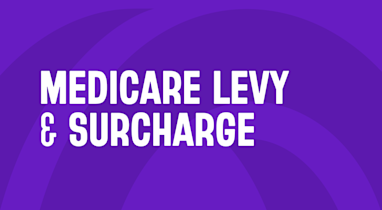quote
Bridging Visa Health Insurance Comparison
If you are currently living in Australia on a bridging visa, you may not be covered by Medicare in the public healthcare system. Even if you are entitled to benefits, Medicare only provides basic cover for medical services, which may not suit you or your family’s specific needs.
Thankfully, you can take out private health insurance on a bridging visa to ensure you have an adequate amount of cover for necessary medical services. Here, we explore what a bridging visa entitles you to, different types of health cover, how to find the right OVHC and much more.
Key Points
Only those on a bridging visa B (BVB) are allowed to leave Australia and then re-enter the country while they wait for a resolution on their immigration status.
Health insurance like OSHC (for students) and OVHC (for visitors) allows those on bridging visas to get healthcare cover outside of Medicare.
The 8501 visa condition means you must hold adequate health insurance for the duration of your stay in Australia.
Compare Club can help you find a cost-effective health policy while on your bridging visa.
What does a bridging visa entitle you to?
A bridging visa is a type of temporary visa provided by the Australian Government that allows individuals from overseas to legally stay in the country while their immigration status is resolved.
There are different types of bridging visas – BVA, BVB, BVC, BVD and BVE, which are discussed in-depth below in ‘What are the different types of Australian bridging visas?’ section – and your entitlements will differ depending on the type of visa you hold.
For example, while all bridging visas allow you to stay in Australia while the immigration process is carried out, only those on a bridging visa B (BVB) are able to leave and re-enter the country while they wait for a decision.
You can find out more about eligibility for a BVB at the Department of Home Affairs.
Bridging visas generally last until 28 days after a decision on the main visa application has been made, and is intended to give holders enough time to make a substantive visa application.
Also, depending on the type of bridging visa, holders may or may not have full work rights to be employed in Australia.
Learn more about health insurance with these guides
Do I need health insurance for a bridging visa?
The type of health insurance you need on a bridging visa – and indeed whether you can even get access to Medicare or private cover – will depend on the visa you are applying for.
Those applying for student visas, for example, can take out Overseas Student Health Cover (OSHC) to meet their healthcare needs.
However, if you are a citizen of a country with a Reciprocal Health Care Agreement (RHCA) with Australia, then you can opt out of OSHC if you are already covered in your home country. Nations with an RHCA with Australia include:
New Zealand
The United Kingdom
The Republic of Ireland
The Netherlands
Sweden
Finland
Norway
Belgium
Slovenia
Italy
Malta
If you are planning to work in Australia on a 457 visa – or any other type of visa with condition 8501 to take out health insurance – then you will need to look at Overseas Visitor Health Cover (OVHC) policies.
Especially if you are on a bridging visa that does not entitle you to Medicare benefits, purchasing OVHC can cover you for a variety of healthcare costs.
Health insurance is also available for 482 visa holders.
What are the different types of Australian bridging visas?
Because different bridging visas have different purposes, it’s important you understand your entitlements – particularly in terms of whether you are able to get access to Medicare or whether you can even take out private health cover.
Here are the most common types of bridging visas:
Bridging visa A (BVA): You are allowed to stay in the country after your current substantive visa has expired and while you await your new visa application to be processed. If you leave the country, you cannot return on this visa.
Bridging visa B (BVB): While awaiting approval of your visa application, you can leave and return to Australia legally, or stay here for the duration of the process.
Bridging visa C (BVC): Usually given to those who have overstayed their visitor visa in Australia and wish to make their stay legal. While waiting for the visa application to be processed, if you leave the country you may not be allowed to return.
Bridging visa D (BVD): You can stay in the country for a short period of time after your substantive visa expires, giving you time to submit a new application or leave Australia, or apply for a BVE. You have no working rights on a BVD.
Bridging visa E (BVE): A bridging visa that lets you stay in the country while your immigration status is decided. You cannot re-enter Australia if you decide to leave the country.
Can any bridging visa types get Medicare?
There are some instances where those on a bridging visa are entitled to Medicare benefits.
For example, if your bridging visa is part of an application for permanent residency, or if you are making an appeal for a refusal of a permanent visa application.
Legally, anyone is entitled to a Medicare card if you come to the country with a reciprocal healthcare arrangement (RHCA), or if you meet the definition of being an ‘Australian resident’. According to the Health Insurance Act 1973, this means you:
Have applied in Australia for a permanent visa, and
Hold a temporary visa (including a bridging visa), and
(a) Your spouse/ de facto spouse, parent or child is an Australian citizen or an Australian permanent resident, or (b) You have permission to work.
For those who don’t have access to Medicare, or if the Medicare benefits aren’t enough to meet your healthcare needs, getting Overseas Visitor Health Cover can be a smart decision.
Does OSHC cover bridging visas?
Yes, if you take out Overseas Student Health Cover on a bridging visa, you will need to have applied for a student visa and currently be on a bridging visa to take out OSHC. Some of the care OSHC policies cover include:
Visits to a general practitioner (GP)
In-patient medical services
Shared accommodation (in public or private hospitals)
Extras, such as dental, optical and physio – these can be purchased at an additional fee
Individuals who are not students and are on a bridging visa – namely, BVA, BVB and BVC – can take out Overseas Visitor Health Cover to meet their insurance needs.
What is the 8501 visa condition?
If you are already on a student visa or working visa holder – or applying for one of these visa types and currently on a bridging visa – then you may have noticed a condition called health insurance requirement 8501.
This requirement requires you to have and maintain adequate health insurance for the whole of your stay in Australia.
Adequate health insurance for visa holders is explained in-depth by the Department of Home Affairs, so make sure you are aware of your health insurance obligations as a student, visitor or worker in Australia.
COMPARE & SAVEWhat's new in health insurance?
Biggest hike in years: Health insurance premiums will rise by an average of 4.41% on April 1 — the largest hike since 2018 and noticeably higher than last year’s increase of 3.73% (in 2025).
Most Aussies face higher hikes: Compare Club’s data suggests that due to the five largest funds holding nearly 80% of the market, the average increase for the majority of policyholders is closer to 5.00%.
Review your policy: Now’s the time to check if your policy still fits—better deals could be available.
How do I find the best health insurance for me?
If you are looking for OSHC, OVHC or simply want to get access to broader healthcare benefits than Medicare provides, it’s important to take the time to compare policies.
Some will be more cost-effective than others, so make sure your policy includes what you need and has no hidden costs or out-of-pocket expenses.
You can get started with Compare Club today to find a policy suited to your needs and budget from our panel of insurers
Compare Club specialises in finding affordable health insurance for those on bridging visas and a variety of other student, visitor and worker visas. If you’re ready to get covered for exactly what you need, start comparing today.
COMPARE & SAVESources
*Based on 111,658 policies sold Jan 2017 - Nov 2021
Things You Should Know
*As our customer you'll be provided with quotes directly from the insurer for the product you intend to purchase. We manage the application and deal with the administration work and insurer. We do not charge you a fee for the service we provide, the insurer simply remunerates us in return for setting up your policy. The financial and insurance products compared on this website do not necessarily compare all features that may be relevant to you. Comparisons are made on the basis of price only and different products may have different features and different levels of coverage. Compare Club does not compare all policies available in Australia and our partner insurers may not make all policies available to Compare Club.
This guide is opinion only and should not be taken as medical or financial advice. Check with a financial/medical professional before making any decisions.
Chris Stanley is the sales & operations manager of health insurance at Compare Club. With extensive experience and expertise, Chris is a trusted leader known for his deep understanding of health insurance markets, policies, and coverage options. As the sales & operations manager of health insurance, Chris leads a team of dedicated professionals committed to helping individuals and families make informed decisions about their health insurance needs.

Meet our health insurance expert, Chris Stanley
Chris's top health insurance tips:
- 1
Australia’s public health system is world-class, but wait times for public hospitals can be long, inconvenient - and leave you living in constant pain while you wait.
- 2
An appropriate private health insurance policy can speed up your surgery, relieving your pain sooner.
- 3
Family health cover means your children are covered under the same policy as you.
- 4
Many health insurance policies come with a 12-month waiting period for pregnancy-related cover, so it’s a good idea to get a family policy organized well before starting your family. This means your child will be covered from birth until at least their early twenties (depending on which health fund you select).




